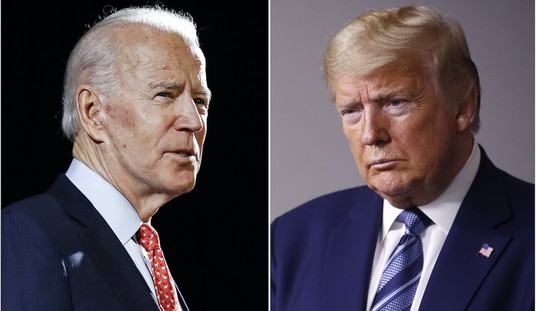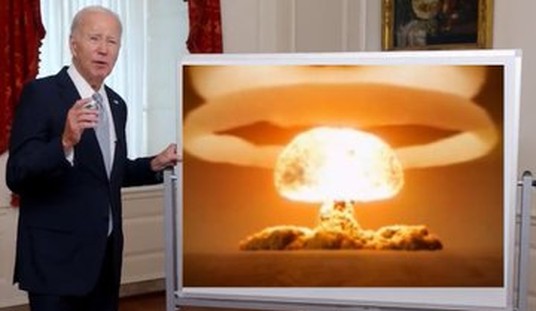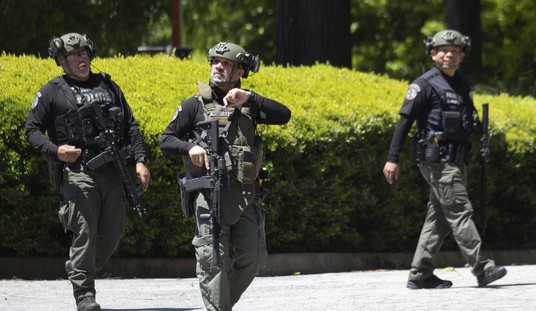The rapid departure of Michael Flynn likely set a Guinness record for the fastest exit of a presidential adviser — at least until Anthony Scaramucci arrived and then even more immediately departed. According to NBC News, special counsel Robert Mueller has focused on the 18 days between a warning from an Obama administration holdover and Flynn’s eventual boot from the West Wing as a potential obstruction of justice issue. Mueller may be less focused on Flynn’s departure than on Trump’s potential instructions to Flynn before then:
Special counsel Robert Mueller is trying to piece together what happened inside the White House over a critical 18-day period that began when senior officials were told that National Security Adviser Michael Flynn was susceptible to blackmail by Russia, according to multiple people familiar with the matter.
The questions about what happened between Jan. 26 and Flynn’s firing on Feb. 13 appear to relate to possible obstruction of justice by President Donald Trump, say two people familiar with Mueller’s investigation into Russia’s election meddling and potential collusion with the Trump campaign.
Multiple sources say that during interviews, Mueller’s investigators have asked witnesses, including White House Counsel Don McGahn and others who have worked in the West Wing, to go through each day that Flynn remained as national security adviser and describe in detail what they knew was happening inside the White House as it related to Flynn.
Some of those interviewed by Mueller’s team believe the goal is in part to determine if there was a deliberate effort by President Trump or top officials in the West Wing to cover up the information about Flynn that Sally Yates, then the acting attorney general, conveyed to McGahn on Jan. 26. In addition to Flynn, McGahn is also expected to be critical to federal investigators trying to piece together a timeline of those 18 days.
This gets back to the old Watergate question: What did the president know, and when did he know it? When did Trump and McGahn learn that Flynn had lied to the FBI? However, NBC’s own report makes it clear that Yates never informed McGahn that he had, even after McGahn specifically asked:
“Mr. McGahn asked me how he did and I declined to give him an answer to that,” Yates testified in May. She told Congress that it would have been inappropriate for her to tell McGahn whether Flynn had been truthful.
Two former prosecutors tell NBC News that McGahn’s first step after that would have been to confront Flynn and find out what he’d told the FBI. It’s possible that McGahn did just that — and that Flynn didn’t tell him the truth, either. It’s also possible that McGahn never talked to Flynn, although it’s only a remote possibility. Since Flynn had continued to lie about the content of his phone call with Sergey Kislyak to senior White House officials into the second week of February, as NBC also notes, the first possibility seems highly probable. That would have served as a flat denial of any allegations that he lied to the FBI about the conversations, and if so, then the Trump administration’s decision to keep him around would have been clean of an intent to obstruct. Foolish, as it turns out, but clean.
All of this seems rather weak sauce, however, considering that Flynn got fired less than three weeks later anyway. How would an 18-day delay in firing Flynn amount to an obstruction of justice? It wouldn’t have stopped or burdened an FBI investigation, which is what obstruction is supposed to mean. Under the set of circumstances we have now, and laid out in this NBC report, an allegation of obstruction makes no sense at all.
But that isn’t the real issue Mueller appears to be pursuing. Mueller wants to know whether Trump instructed Flynn to lie to the FBI and others to cover up the outreach to the Russians:
Mueller is trying to determine why Flynn remained in his post for 18 days after Trump learned of Yates’ warning, according to two people familiar with the probe. He appears to be interested in whether Trump directed him to lie to senior officials, including Pence, or the FBI, and if so why, the sources said.
The question, then, is not what the president knew and when he knew it. It’s what did the president say, and when he said it and to whom. If Trump told Flynn to lie to FBI investigators, then he would be subject to a charge of obstruction of justice. (Yes, presidents can commit obstruction of justice, as both Richard Nixon and Bill Clinton proved.)
The question would be why Trump would have bothered to have Flynn lie about it. There was nothing illegal about Flynn’s contact with Kislyak during the transition, despite all of the recent hyperventilating over the Logan Act. Had that news emerged, it might have created some political embarrassment, but Trump cares about political embarrassment less than most other politicians anyway. There would have been zero upside for Trump to have Flynn lie to the FBI, and even less than zero in lying to Mike Pence, who has no authority whatsoever that doesn’t come from Trump.
But also prompts the question of why Flynn would lie to the FBI, too. Again, since contacting Kislyak and discussing policies in the transition wasn’t illegal, the lies about it were pointless and amateurish. Since Flynn’s firing, we have seen some serious allegations emerge about potential violations of the Foreign Agent Registration Act (FARA) and some hints of very questionable activities with the government of Turkey. Perhaps Flynn didn’t want the FBI digging around into those, but … then again, lying to the FBI was almost an invitation to do just that. Flynn’s been around long enough to know better, so the suspicion would naturally fall on the newcomer at the top of the food chain.
And of course, Flynn has copped a plea deal and pledged to cooperate in the Mueller probe. He got off mighty easy, and it would have to be in exchange for something. Note too that Mueller specifically indicted Flynn on this charge rather than any of the other ancillary issues surrounding him that could have led to a much longer prison term. The White House has to be worried that Flynn’s telling Mueller something about why he lied, and more importantly, who told him to do it.
One thing to keep in mind, however, is that the word of a co-conspirator is not enough to indict. Prosecutors need corroborating testimony or evidence to support witnesses who have cut deals to testify against their partners in alleged crime. If NBC’s report is accurate, that seems to be precisely what Mueller is trying to find now.








Join the conversation as a VIP Member